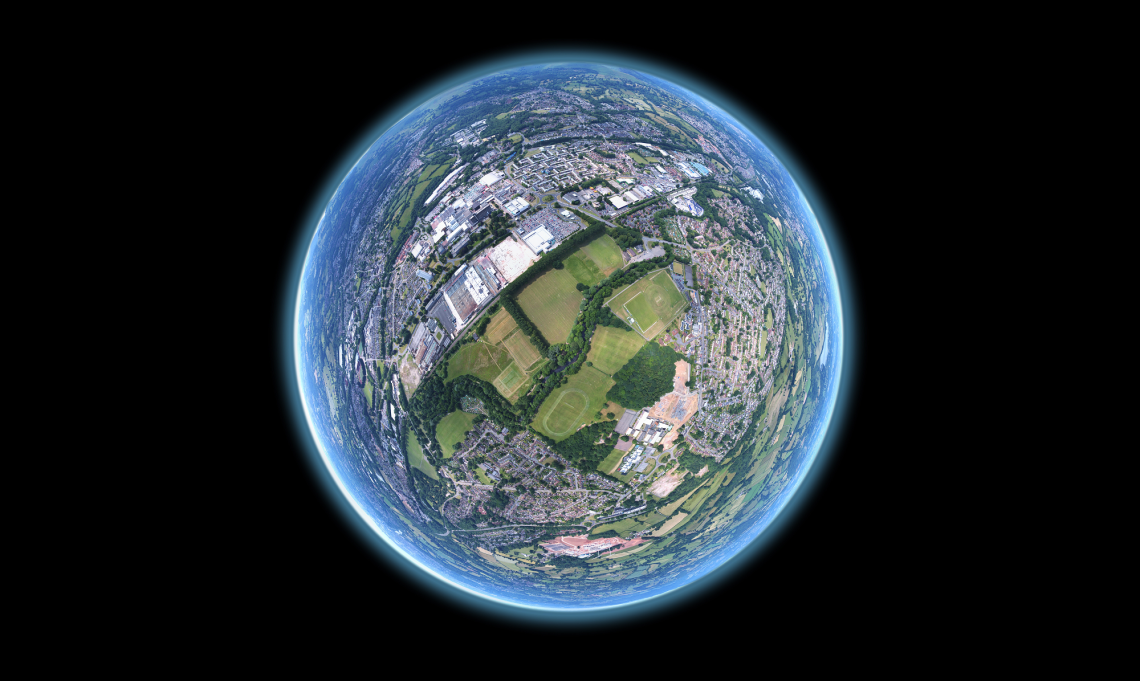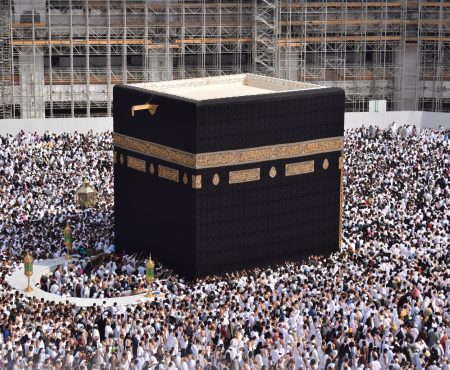The state of the environment has become one of the most talked about topics in the world today. Faced with a growing number of threats, many are worried that the health of the environment will only get worse. There is a long list of threats to the environment to include pollution, water scarcity, deforestation, species endangerment, resource depletion, climate change, as well as waste. A healthy environment is critical to human health, along with the continuation of life on earth. However, many are worried that the current speed at which the environment is being damaged may reach a point of no return, threatening life as we know it.
With the sanctity of the environment highly regarded in Islam, one can learn some valuable lessons from Islamic teachings along with new ways to approach the problems threatening humanity as a whole. After all, The Prophet (PBUH) of Islam strongly advocated for sustainable land cultivation, natural resource preservation, wildlife protection, and humane treatment of living creatures.
While many factors can be blamed, a large majority of the damage to the environment is man-made. As the Qur’an says, “Corruption has appeared throughout the land and sea by [reason of] what the hands of people have earned so He may let them taste part of [the consequence of] what they have done that perhaps they will return [to righteousness].” (30:41)
In the Qur’an, corruption refers to all manners of decadence and injustice, including the destruction of the natural environment. As we see in this verse, God has reminded us that corruption on earth is the result of human actions, as is evident in the state of the environment.
In another verse, the Qur’an warns the Prophet Muhammad (PBUH) about a corrupt man, naming two of his characteristics, “And when he goes away, he strives throughout the land to cause corruption therein and destroy crops and animals. And Allah does not like corruption.” (2:205) In this verse, destroying crops and animals are among the characteristics of this corrupt individual, showing the extent to which these actions are looked down upon by God.
According to Islam, human beings are custodians of the earth.
“Now, behold! Your Lord said to the angels: I am placing upon the earth a human successor to steward it” (2:30).
“The earth is green and beautiful and Allah has appointed you his stewards over it.”
The previous verse and hadith increase the responsibility of all human beings in how they treat the earth. Not only are humans responsible for leaving the earth in as good of a condition as possible for the next generations, they have a duty to respect and care for the environment while living in harmony with other creatures.
“And there is no creature on [or within] the earth or bird that flies with its wings except [that they are] communities like you.” (6:38)
Killing animals for recreational purposes is forbidden in Islam. The Prophet of Islam (PBUH) once said, “Whoever kills a sparrow or anything bigger than that without a just cause, God will hold him accountable on the Day of Judgment.” When asked by his audience what consisted of a just cause, he replied, “That he will kill it to eat, not simply to chop off its head and then throw it away”. On the other hand, we have various sayings from the Prophet’s followers which refrain Muslims from simply feasting on animals all the time. One famous saying advises Muslims not to “turn their stomachs into a graveyard of animals.”
The Prophet also instructs his followers to be merciful towards animals, saying “he who is kind and merciful towards animals, Allah will be kind and merciful towards him.” Based on Islamic traditions, if a man kills an animal for amusement, that animal will demand justice from that person on the Day of Judgment.
Trees are another one of the environment’s endangered organisms. Various studies have indicated that the existence of trees is highly effective in removing carbon dioxide from the atmosphere. Areas with large swaths of trees are usually less polluted then those with few or no trees. Trees also carry numerous other benefits which have led to an increased awareness in their value to earth.
The Prophet of Islam (PBUH) strongly advocated for the planting of trees. He once said, “If the Hour (the day of Resurrection) is about to be established and one of you was holding a palm shoot, let him take advantage of even one second before the hour is established to plant it.” He also said, “If any Muslim plants a tree or sows a field, and a human, bird or animal eats from it, it shall be reckoned as charity from him.” In another saying, The Prophet (PBUH) says that anyone who “plants a tree and diligently looks after it until it matures and bears fruit is rewarded.”
At the same time, Prophet Muhammad (PBUH) strictly forbade the destruction of trees and other crops, saying “do not uproot or burn palms or cut down fruitful trees.” This rule was highly stressed even during times of war, regardless of how advantageous the existence of a tree or plant was to the enemy.
One of the biggest threats facing the environment is the wasting of resources. “Indeed, the wasteful are brothers of the devils, and ever has Satan been to his Lord ungrateful.” 17:27
Cutting down the amount of resources we waste can help make up for many of society’s needs which are being neglected, while delaying the chances of them running out. These resources include food, water, land, minerals, and energy among many.
With so much going to waste on a yearly basis, recycling has proved an effective way of preventing resources from running out while allowing for a less expensive alternative to addressing many of society’s needs .
The Prophet Muhammad (PBUH), an avid environmentalist who strongly opposed the wasting of resources, especially water, was quoted as saying, “Do not waste water even if performing ablution on the bank of a fast-flowing, large river.”
Recognizing the potential for abuse and exploitation of natural resources, The Prophet (PBUH) introduced inviolable zones meant to preserve the environment. These areas were intended to protect wildlife, forests, and land, and were not meant to be touched.
The restrictions included the prevention of over-pumping at water sources, grazing and chopping wood in certain forests, along with the killing of certain animal species.
The Prophet (PBUH) demonstrated his commitment to the protection of nature and wildlife by establishing such areas preventing hunting and the destruction of trees and plants in the city of Madinah.
While many measures need to be taken in order to prevent the various threats facing the environment, Islam places a high value on the sanctity of the environment while offering useful teachings and practical approaches to help preserve the environment’s resources.






Tous les commentaires (0)